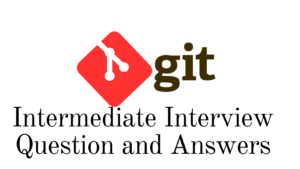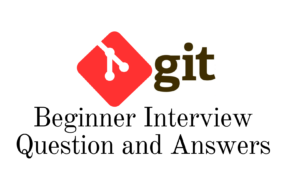A job in the early stages of one’s career can help establish professionalism and discipline which can lead to success in various aspects of life such as wealth, health, and love. Writing a resume may seem daunting, but I am here to help. I will share some helpful Resume writing tips that will assist you in crafting a resume that will catch the attention of potential employers and land you an interview. Whether you’re a recent graduate, a seasoned professional, or a stay-at-home parent seeking a part-time job, by the end of this article you will learn how to write a resume that will land you an interview.
In this article, we will cover what interviewers look for in a resume, how to structure a resume, and I will even provide an example of how to fill out each section. Finally, I will share a bonus tip to help take your resume to the next level. It’s important to note that while there is no definitive way to write a resume, feel free to make adjustments to fit your needs.
What interviewers searching for?
It’s not simply a matter of what interviewers are looking for, but rather what they can discern from a resume. For instance, let’s say we’re applying for a Software Developer position. While I’m using an IT job as an example, the same principles apply to roles in banking, education, hotel management, sales, and any other industry. The problem is that regardless of the job, there could be hundreds or even thousands of applicants vying for the same position.
Given this sheer volume of resumes, interviewers may only spend approximately six seconds scanning through each one. It’s akin to being on Tinder: if your profile isn’t captivating at first glance, you’ll likely be swiped left, as there are countless other profiles to consider. Therefore, your resume shouldn’t be a lengthy, tedious list of information; it should be akin to an advertisement – short, to the point, and concise. This brings us to the topic of resume structure.
Resume structure
I will be taking an example of a person named John Deo, to understand better. We can opt for Microsoft Word as it is a free platform. You have the option to choose Google Docs or any other resume builder that suits your needs. Here’s the link for the sample Resume that I am taking as an example. Simply follow the link, click on the designated button, and download the ‘Resume’ template. You will see that the structure is pre-designed, and now we can proceed to understand what information to input in each section.
Resume writing tips for Experienced professionals
We will first look into an experienced professional resume and after that we will convert it into freshers resume after making few changes. Suppose that John Deo is an experienced software developer and he is applying for a Software Engineer position.
I am taking example of a software engineer, but it is applicable to other professions also.
Name and Professional Title
The initial step is to include your Name in the resume. In this scenario, we are creating a profile for John Deo, so we will include his name. Following the name is the Professional Title section where you can use words or phrases that describe your professional skills, such as Innovator, Problem Solver, Mentor, Quick Learner, or Firefighter. By mentioning these titles, you can showcase your expertise and strengths. For John Deo’s profile, we will use Problem Solver, Mentor and Quick learner. It’s essential to ensure that the Professional Title is consistent with the rest of the resume, so if you include any specific skill or expertise, make sure to support it throughout the resume.
Contact Information
Moving on to the Contact Information section, you can include your email ID, phone number, and any relevant social media profiles such as LinkedIn or Twitter. It’s important to avoid using unprofessional email IDs like ‘chocolatyboy@gmail.com’ and instead create a new one that includes your name. Additionally, including a SkypeID may be helpful for conducting interviews with international companies. However, it’s unnecessary to include personal information such as marital status, religious affiliation, date of birth, or a photo as it takes up space and is not relevant to the job application.
Experience
The Experience section is crucial, and you should start with your current job and then list your previous positions in reverse chronological order. In case you have had different roles in the same company, you can have a separate section for each position. In this section, you need to provide the name of the company, your job title, and the duration of your employment. Using bullet points, highlight your key deliverables and responsibilities. Remember that this section is an opportunity to demonstrate how your experience aligns with the position you are applying for. In the case of John Deo, for example who is applying for a Software engineer role, mentioning that he led developers in his current company is a relevant detail. Also, use the keywords from the job description throughout your experience section. This shows that you have the experience that the hiring manager is looking for.
Additionally, try to be specific about your achievements. For instance, instead of writing, “Managed a Facebook Page,” write, “Revamped a business page on Facebook, which led to over 70K followers (up by 40% in 2 months) and a 4% increase in revenue.” By quantifying your accomplishments, you provide the Hiring Manager with evidence of your abilities, which boosts your chances of getting hired.
Education
Moving on to the Education section, if you have a significant amount of work experience, it’s advisable to keep this section concise. In such cases, mentioning only the details of your most recent degree suffices. For instance, if you have been working for six years or more, including your school percentage is unnecessary. Simply mention your last degree and the institution you obtained it from, followed by the duration of your degree program. You can then highlight a few key points, such as your CGPA, relevant coursework, and any honors or achievements. However, if you are a student or a recent graduate, you can provide more extensive details about your education, which we will discuss shortly.
Skills
In the Skills section, it’s common for Software Job applicants to list the programming languages and technologies they are proficient in and rate their proficiency level. It’s important to include skills mentioned in the job description. For John Deo as example, since he has experience in Java, JavaScript, Blockchain and SQL, I have listed them. If you are not from the Software field, you can mention your relevant skills such as Communication Skills, Critical Thinking Skills, Leadership Skills, Social Media Skills, Project Management Skills, and any other skills mentioned in the job description. It’s crucial to ensure that the skills you list are relevant to the job you are applying for.
Additional Section
The next section to include is Additional Information. This section is an opportunity to showcase your achievements, credentials, publications, patents, volunteer work, language proficiency, extracurricular activities, attended conferences/courses, or any other relevant hobbies that match the job requirements. It is recommended to highlight the two best sections that align with the job description. In this case, we will include the awards received and the three patents held. However, let’s explore how to modify this profile for a fresher’s resume.
Resume writing tips for Freshers
If you are a newcomer to the workforce or seeking an entry-level position, the resume structure remains largely unchanged, except for three modifications.
Education
For freshers, it is recommended to prioritize your Education section over your Experience. Provide the name of your institution, degree obtained and the corresponding time period in reverse chronological order until your 10th standard. Additionally, ensure to include a separate column for your percentage or CGPA.
Experience
The next section is Experience. Although as a fresher, there may not be much to include in this section, there are still a few things that can be highlighted. As an engineering student, you may have completed mini projects every semester, and this is the perfect opportunity to showcase them. Include the project name and a brief description in 1-2 lines. Additionally, mention any internships, research papers or collaborations with faculty members. Even if you have worked part-time to support yourself during college, such as tutoring or at a fast-food chain, it is worth mentioning as it demonstrates a strong work ethic and professionalism developed early on.
Additional Section
The third and final modification pertains to students. As a student, there are several noteworthy accomplishments that you can include in the Additional Section, such as your score in competitive exams, participation in college fests, hackathons, coding contests, or paper presentation contests. You can also highlight any initiatives you took during college, such as managing the college website, newsletter, or maintaining your own blog. These are some of the key differences between a Fresher’s profile and that of an experienced individual.
Points to remember
Here are three important points to remember when writing your resume. Firstly, limit your resume to a maximum of one page. Only add additional pages if the information is relevant to the position you’re applying for, and avoid adding unnecessary information just to fill up space. Secondly, always proofread and double-check your resume for any grammatical errors. Grammatical errors can negatively impact your chances of getting the job. Lastly, never lie on your resume. It’s better to admit you lack certain skills than to pretend to have them, as dishonesty can ruin your chances of future employment with the company. Remember that while companies may be willing to train new hires, they don’t tolerate dishonesty.
Bonus point
Your chances of getting into an interview increases significantly when you have a good cover letter with your resume and you have an optimized LinkedIn profile.
Here’s the link of the article where you could learn about creating Cover letters.
We have created course about optimizing your LinkedIn profile so that you could be found on LinkedIn and land on your dream job. Here’s the link for the course.
If still you are not getting interview calls, this link will definitely help you. It has number of ways by which you can increase your chances of getting noticed by employers.
Thanks for reading. Best of luck for your job search.




